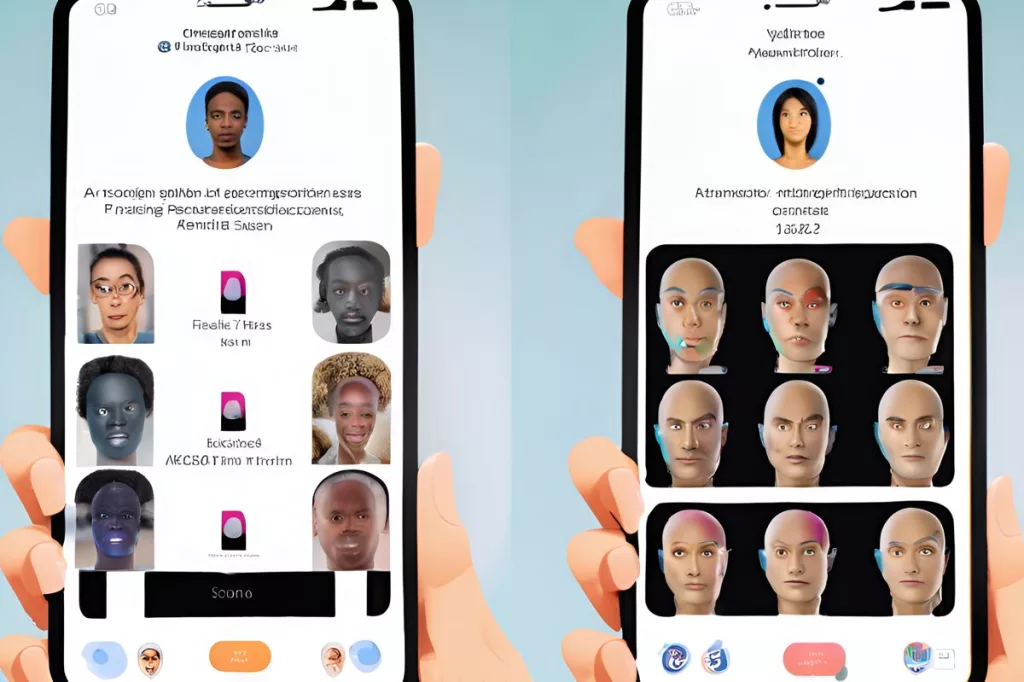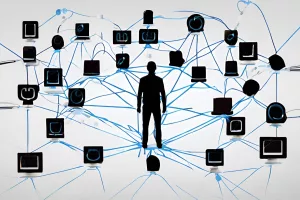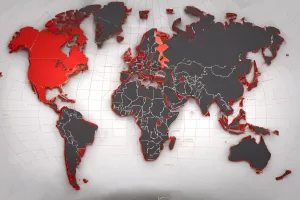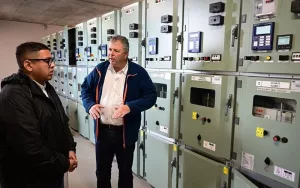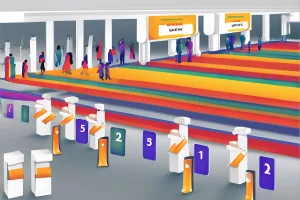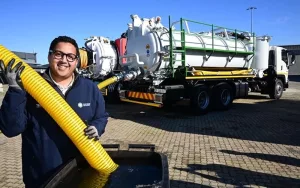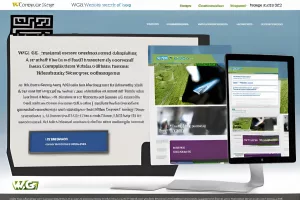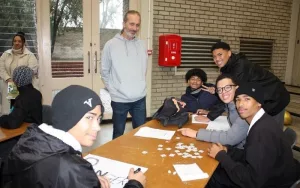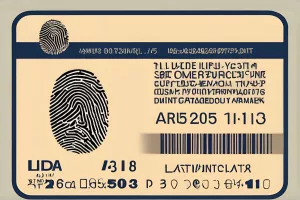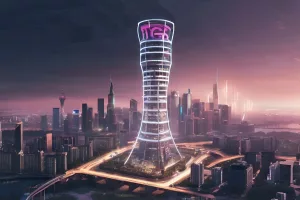The aim is to create a digitalcentric institution that efficiently caters to citizens and reshapes governance in South Africa, achieved through a comprehensive digital platform using facial and fingerprint recognition technologies and machine learning. This transformation will restore the credibility of South Africa’s population register, strengthen its immigration systems, and position it as a potent economic driver for the country. Despite challenges, Schreiber is confident in the department’s potential to set an example of digital transformation for other departments to follow.
The MTNUJ Media Innovation Summit held on September 4, 2024, in Johannesburg aimed to explore the impact of the information age on the media sector. The keynote speaker, Hon. Kenny Morolong, emphasized the importance of data protection, independent sector regulation, and careful interaction with consumers in the telecommunications industry. He also recognized the emerging threat of ‘fake news’ and announced the induction of a Print and Digital Media Transformation and Revitalisation Steering Committee to devise innovative strategies to rejuvenate print and digital media in South Africa.
Cape Town has introduced a cuttingedge Pump Station Control Room that digitally monitors the realtime performance of the city’s water and sanitation systems. This innovation has revolutionized the city’s approach to infrastructure complications, providing swift deployment of repair teams and reducing false alarm response times by up to half. The initiative is part of a comprehensive approach to improving infrastructure, reducing environmental impact, and benefiting the community, with 75% of the infrastructure investment designated to assist lowerincome households and communities. Cape Town is paving the way for other cities in utilizing digital technology to enhance urban infrastructure and improve the quality of life for residents.
South Africa Awaits Starlink’s Arrival: Navigating Regulatory Challenges Towards Digital Revolution
South Africa is eagerly anticipating the arrival of Elon Musk’s Starlink project, which aims to revolutionize internet accessibility in rural and secluded regions. However, regulatory hurdles have hindered its entry into the country. South Africa’s Electronic Communication Act requires that any communications license holder must be 30% owned by historically disadvantaged groups, which could pose a significant hindrance to Starlink’s application process. Recent events suggest potential progress, but it remains to be seen if Starlink can navigate regulatory constraints and bring about a new era of connectivity in South Africa.
The Department for Communications and Digital Technologies is excitedly anticipating a comprehensive briefing to the Portfolio Committee on Communications and Digital Technologies. The briefing will focus on financial outcomes and reporting for the third and fourth quarters of the 2023/24 fiscal year and will be held virtually. The meeting will cover exciting advancements in AI, legislative developments, and operational realignments. The event highlights South Africa’s commitment to progress, technological innovation, and transparency.
A Landmark Achievement in South Africa’s ICT Industry: The Partnership between SEACOM and the ICT SMME Chamber
SEACOM South Africa and the ICT SMME Chamber have signed a Memorandum of Understanding (MOU), marking a new phase of shared ambition and cooperation in South Africa’s Information and Communications Technology (ICT) sector. This partnership presents an opportunity for SMMEs in the ICT sector to leverage SEACOM’s digital services and expedite their growth, while also serving as a model for future collaborations in the industry. The MOU signifies a significant shift in South Africa’s digital economy and reflects the Parliament’s dedication to promoting meaningful economic transformation and participation.
South Africa’s Athlone Wastewater Treatment Works transformation project is a groundbreaking initiative that is transforming the way waste is treated. With a substantial capital investment of R4 billion and executed in phases, the project aims to enhance the quality of treated effluent, reduce odours, and ensure a sustainable future for the facility. Phase 2 focuses on enhancing capacity and community impact, including addressing the odour issue, improving sludge management, and refining the inflow system. The project sets a benchmark for sustainable future wastewater management and promises a future where waste treatment aligns with the highest environmental standards.
Cape Town has launched a cuttingedge online appointment system for tasks such as motor vehicle license renewals, account payments, and query resolution. The system is userfriendly and has a fivestep process, allowing residents to choose a convenient date and time slot, input their contact details, and receive an SMS and email confirmation of their booking. This innovative system marks a transformative shift in the way residents engage with the city’s public services and is a proactive initiative to refine customer service and offer residents a more timeefficient method of accessing City services.
CCTV surveillance is transforming urban security by providing law enforcement with an unparalleled level of precision in crime detection and maintaining public safety. The Strategic Surveillance Unit, equipped with the power of CCTV surveillance, has become a crucial ally to law enforcement officers in recovering firearms, making arrests, and issuing fines for various infringements. CCTV surveillance not only catches criminals in the act but also speeds up the response time of emergency services, aids investigators, and guarantees public safety. The eyes in the sky are protecting every corner of the city and making it a safer place for everyone.
Minister Leon Schreiber has called for a digital transformation of the Department of Home Affairs in South Africa, citing the importance of national security against identity theft, visa fraud, and corruption. He highlighted the systemic crisis and outdated, paperdriven, manual systems that are vulnerable to manipulation and urged for a stateoftheart digital system to streamline operations and eradicate vulnerabilities. Schreiber proposed a digital platform for instantaneous auditing of the population register, streamlining visa approval, and eliminating queues and system downtime, which could invigorate tourism, draw skilled professionals, stimulate investment, and make Home Affairs more efficient.
Embracing Technological Innovation: Cape Town’s Water and Sanitation Directorate’s Fleet Revamp
Cape Town’s Water and Sanitation Directorate has invested over R105 million in a fleet of advanced vehicles and equipment to improve the city’s water and sanitation systems, including unclogging sewer blockages and ensuring water supply during disruptions. The new fleet includes advanced jetmachine trucks, combinationunit trucks, and supersucker trucks, as well as a mobile laboratory for offsite water testing. The investment emphasizes the importance of technology in improving essential services while emphasizing the mindful behavior of residents in preserving the city’s systems.
Delta Air Lines is set to offer complimentary WiFi on its longhaul flights, a significant shift from the high costs that have hindered its usage in the past. This move highlights the aviation industry’s understanding of changing customer expectations and a readiness to adjust accordingly. Turkish Airlines has also stated its plan to offer unrestricted free WiFi on all its flights by the end of 2025, pointing to an emerging trend in the airline sector towards offering valueadded services to passengers.
The Western Cape Government has won the Public Service Innovation Award at the United Nations Public Service Forum for its CitizenCentric Digital Transformation project. The project aims to improve the living standards of citizens through the use of digital technology and has been successful in creating a citizenfocused digital infrastructure and eliminating the digital divide. The WCG plans to continue to build on its digital infrastructure to further improve public services.
Two teams from Elsies River library have secured their place among the top three winners of the Mandela Day coding tournament, and are now preparing to compete in the national and world tournaments in October and December. The libraries in Cape Town have embraced coding as a step towards digital transformation, sparking a digital revolution that could redefine the role of libraries in the city and beyond. The coding contest has opened a new chapter in the evolution of libraries, making them centres of innovation and digital interaction.
South Africa’s banking sector is moving towards smart ID cards with fingerprint scans that link to biometric databases to streamline and digitize identity verification. The Department of Home Affairs encourages citizens to switch from green ID books, which will be phased out, to make verification more efficient, quick, and secure. This transition underscores South Africa’s commitment to leveraging technology for a more inclusive, equitable, and digitallyempowered future.
MTN has been named South Africa’s topquality mobile network, according to a report by MyBroadband Insights. The study analyzed 288,210 speed tests conducted by 7,092 mobile data users between April and June. MTN achieved the highest average download speed of 83.08 Mbps, followed by Vodacom at 79.70 Mbps and Cell C at 54.50 Mbps. Overall, South Africa’s average mobile download speed increased to 70.41 Mbps from last year’s 62.27 Mbps.


